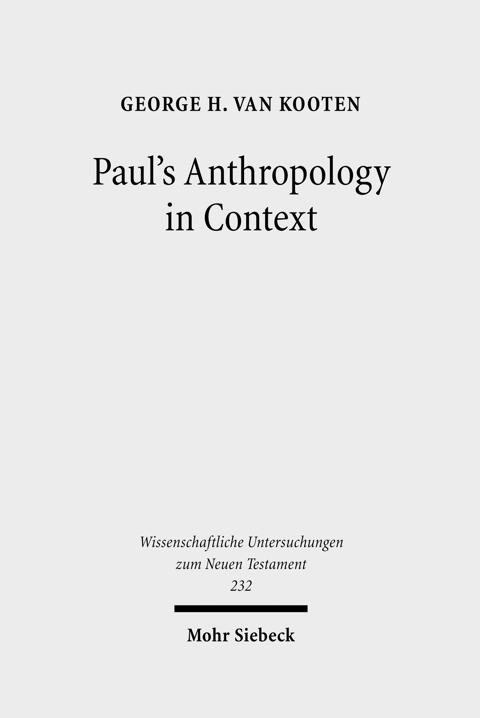본 단행본은 George H. van Kooten의 저서로, 바울의 인간관을 당시의 헬레니즘-로마 담론 내에서 급진적으로 맥락화한다. 저자는 바울의 유대적 용어가 헬레니즘-로마 철학자들의 인간에 대한 성찰과 양립 가능하며, '속 사람'(the inner man)과 같은 플라톤적 개념으로 보완된다고 주장한다. 내적 변혁을 요구하며 보편적으로 적용 가능한 바울의 인간학은 소피스트 운동의 피상적인 가치를 비판하고, 민족 간의 긴장을 극복하기 위한 전략을 제시한다.
George H. van Kooten offers a radical contextualization of Paul's view of man within the Graeco-Roman discourse of his day. Paul's Jewish terminology is compatible with reflections of Graeco-Roman philosophers on man, and is supplemented with Platonic concepts such as 'the inner man'. Paul's anthropology, which calls for inner transformation and is universally applicable, criticizes the superficial values of the sophistic movement, and offers a strategy to overcome ethnic tensions.
Table of contents:
Chapter 1: The ‘Image of God’ in Ancient Judais
Chapter 2: The ‘Image of God’ and ‘Being Made Like God’ in Graeco-Roman Paganism
Chapter 3: Philo’s Anti-Sophistic Interpretation of the Narratives of Moses’ Pentateuch
Chapter 4: Paul versus the Sophists: Outward Performance and Rhetorical Competition within the Christian Community at Corint
Chapter 5: The Two Types of Man in Philo and Paul: The Anthropological Trichotomy of Spirit, Soul and Bod
Chapter 6: Paul’s Anti-Sophistic Interpretation of the Narrative of Moses’ Shining Face (Exod 34) in 2 Cor 3: Moses’ Strength, Well-being and (Transitory) Glory, according to Philo, Josephus, Paul, and the Corinthian Sophist
Chapter 7: The Renewal of the ‘Discredited Mind’ Through Metamorphosis: Paul’s Universalist Anthropology in Romans







